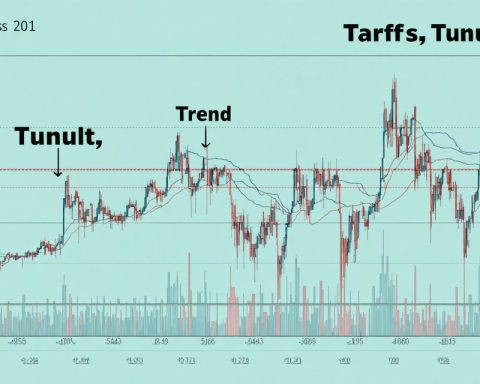South Korea finds itself in a precarious position as economic and political challenges collide, threatening its standing in the global tech equity market dominated by the likes of Taiwan. Amid worldwide enthusiasm for artificial intelligence developments, Taiwan’s stock market has experienced a significant boost, with its major index rising nearly 30% this year — marking its best performance since 2009.
This substantial growth has created a noticeable gap between South Korea and Taiwan, especially as the latter’s market capitalization now surpasses South Korea’s by about $950 billion. With AI leaders such as Nvidia and Microsoft increasingly turning to Taiwan for essential components, the island nation is poised to maintain its competitive advantage going forward.
Both South Korea and Taiwan face potential tariffs under the incoming US administration, but experts predict that Taiwan might withstand the impact more effectively due to its critical role in American tech supply chains.
While Taiwan’s currency, the dollar, has maintained stronger performance relative to the weakening Korean won, market analysts suggest this disparity could widen further if political instability in South Korea continues. The recent controversy surrounding President Yoon Suk Yeol, following his attempt to impose martial law, is exacerbating these political tensions and creating uncertainty around South Korea’s economic prospects.
In Taiwan, shares of Taiwan Semiconductor Manufacturing Co., a key player for firms like Nvidia and Apple, have significantly bolstered the market. Conversely, South Korea’s Samsung Electronics faces struggles with declining shares, missing out on the AI surge, partly due to technological and managerial challenges.
Observers warn that South Korea risks falling further behind unless it addresses corporate governance issues and capitalizes on emerging industry trends.
South Korea’s Struggles in the Global Tech Market: Challenges and Opportunities
South Korea is navigating a complex landscape of economic and political challenges, casting a shadow over its position in the global tech equity market, particularly in comparison to Taiwan’s surging success. The burgeoning enthusiasm for artificial intelligence (AI) innovations has fueled Taiwan’s stock market, marking its most impressive growth since 2009. This performance underscores a widening gap between the two tech powerhouses, as Taiwan’s market capitalization has now outpaced South Korea by approximately $950 billion.
Features and Innovations Driving Taiwan’s Growth
Taiwan’s tech market prowess is significantly attributed to its pivotal role in the supply chain for AI giants like Nvidia and Microsoft. Companies like Taiwan Semiconductor Manufacturing Co. (TSMC) are instrumental, as their advanced components are indispensable to global tech leaders. The country’s focused strategy on nurturing high-tech manufacturing and innovation gives it a competitive edge that South Korea struggles to match.
South Korea’s Market Analysis and Emerging Challenges
South Korea is facing several headwinds that could impact its future market performance. Key issues include:
– Exchange Rate Volatility: The South Korean won has shown weakness compared to the relatively stronger Taiwanese dollar, and political instability in Seoul could further exacerbate this trend.
– Corporate Governance and Technological Struggles: South Korean conglomerates like Samsung Electronics have been affected by governance issues and have not effectively capitalized on AI trends. Addressing these internal challenges is crucial for South Korea to regain its footing.
– Political Instability: Controversies, such as President Yoon Suk Yeol’s attempt to impose martial law, have heightened political uncertainties, potentially impacting economic decisions and investor confidence.
Predictions and Strategic Insights
Experts suggest several strategies South Korea might consider to narrow the gap with Taiwan:
– Improving Corporate Governance: By enhancing transparency and management practices, South Korean companies could regain investor trust and adapt more swiftly to market demands.
– Embracing AI and Emerging Tech: Shifting focus towards AI and other emerging technologies could position South Korea as a formidable competitor in the tech industry.
– Strengthening Trade Relations: Navigating potential tariffs from geopolitical developments, like those from the incoming US administration, requires robust trade strategies to ensure resilience in tech supply chains.
Conclusion
South Korea’s path forward in the tech market entails addressing internal challenges, embracing innovation, and implementing strategic reforms. While Taiwan currently leads the charge, South Korea has the potential to reclaim its position as a technological leader if these elements are effectively managed. As both nations face shared global challenges, fostering adaptability and sustainability in tech practices will be key to their continued success and influence in the global market.



















